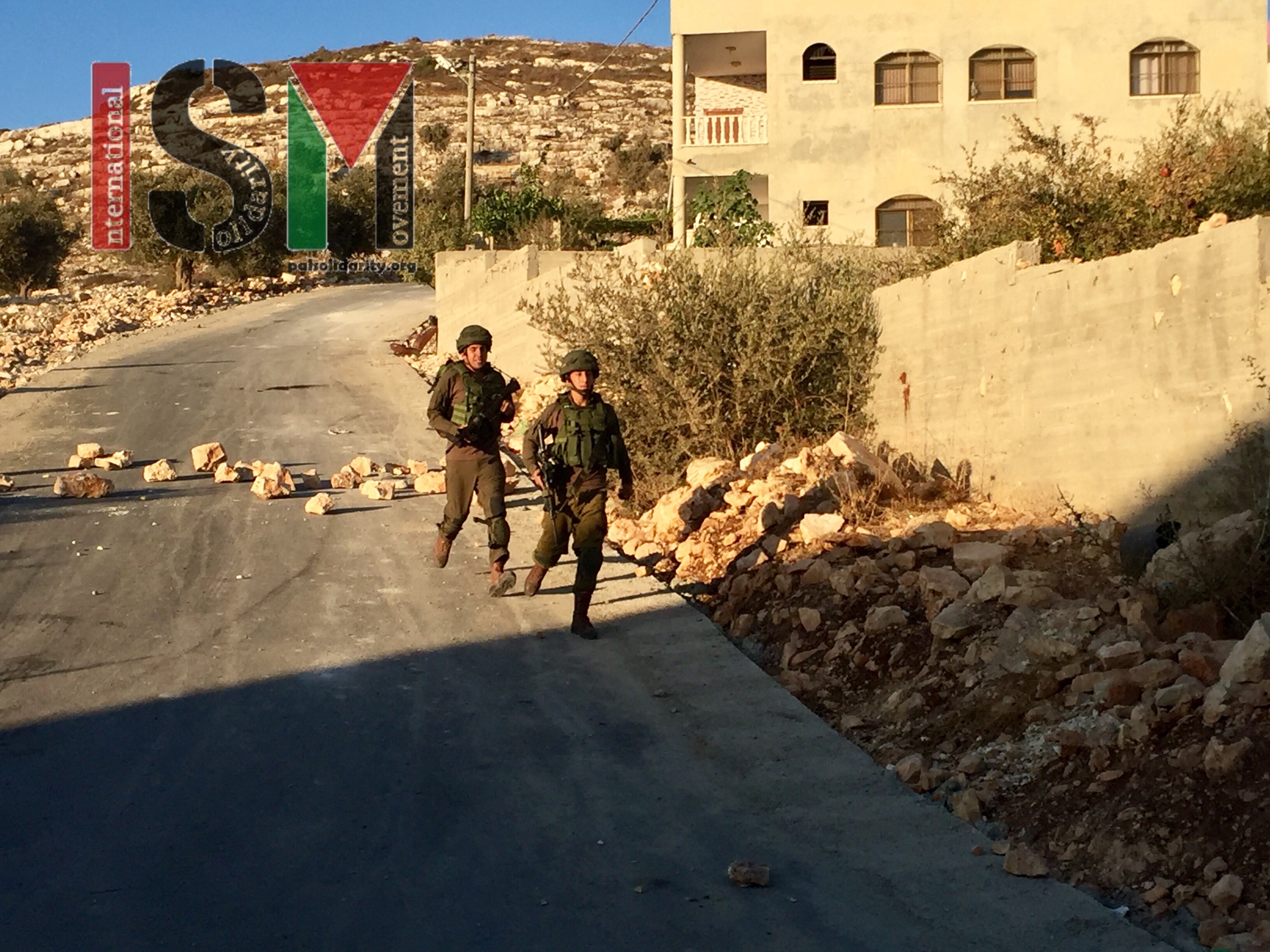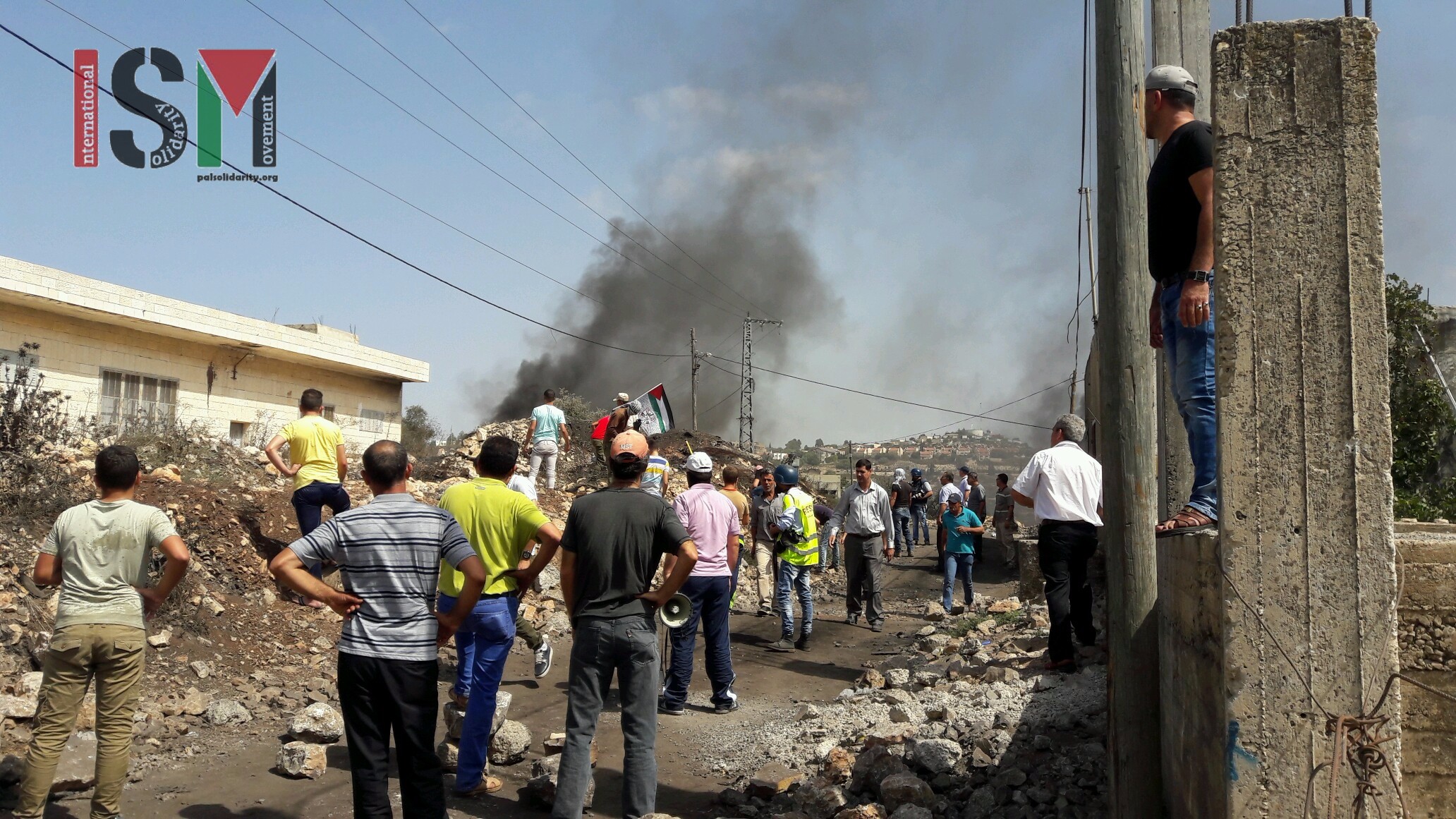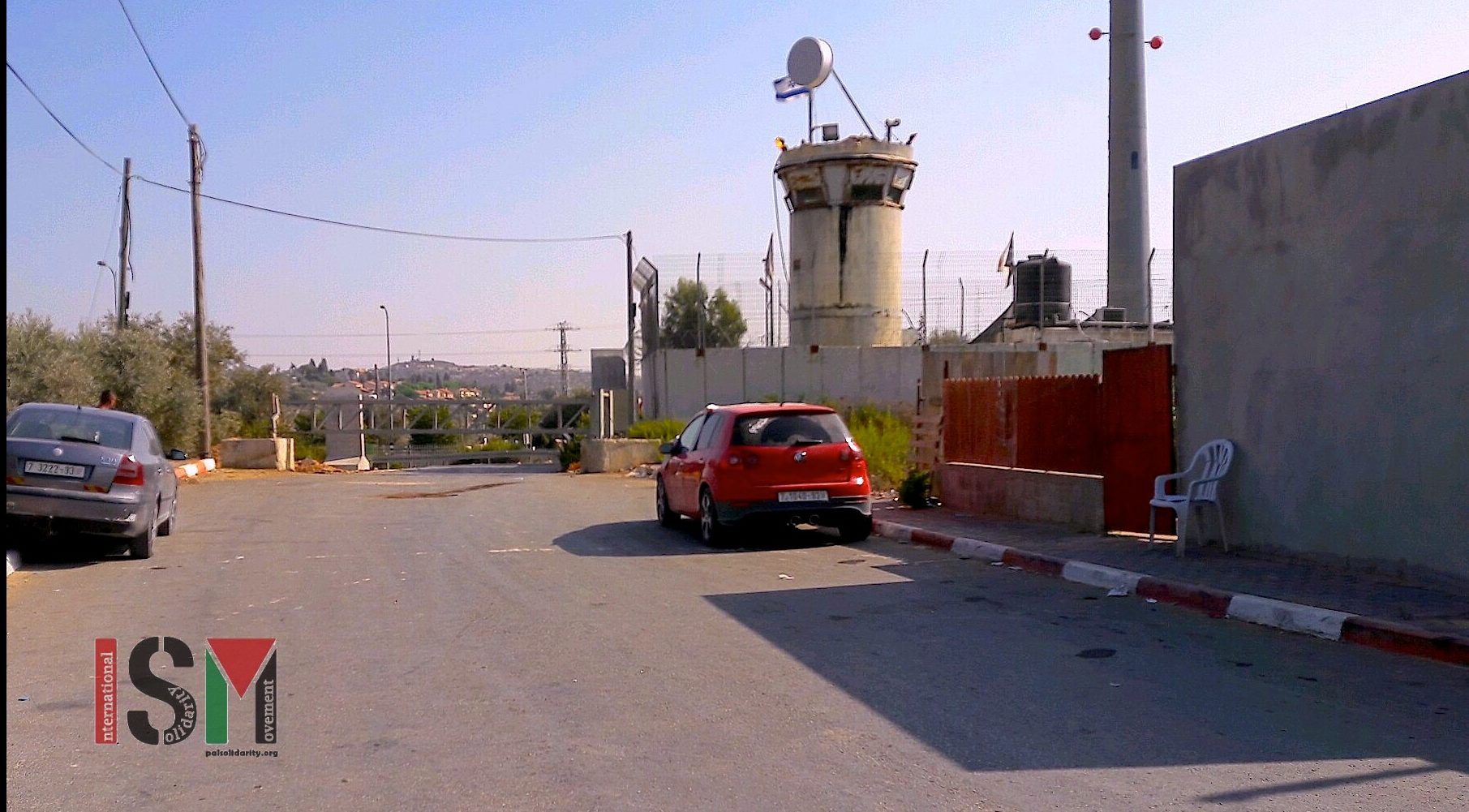Category: Press Releases
-
Israeli Soldiers Invade Private Residences to Suppress Kafr Qaddum Protest
30th September 2017 | International Solidarity Movement, Nablus team | Kafr Qaddum, occupied Palestine Activists continued to protest in Kafr Qaddum today, despite heightened repression from the Israeli Army. Before the protest began, an Israeli Armed Personnel Carrier (APC) entered the village in a move to intimidate the residents before returning to the illegal settlement…
-
Live ammunition fired at protesters in Kafr Qaddum
22nd September 2017 | International Solidarity Movement, Nablus team | Kafr Qaddum, occupied Palestine During today’s march in Kafr Qaddum, three protesters were injured by rubber coated steel bullets fired by the Israeli armed forces. When it looked as if the soldiers had retreated, they surprised the demonstrators by re-entering the village and fired several…
-
Closure of Kifl Hares following several night raids and arrests
19th September 2017 | International Solidarity Movement, Nablus Team| Kifl Hares, Occupied Palestine “They punish us in all the ways they can” The last two weeks, 17 boys and men aged 16-25 have been arrested during night raids in the village of Kifl Hares. Since a week ago, the Israeli military have also closed off the main…



